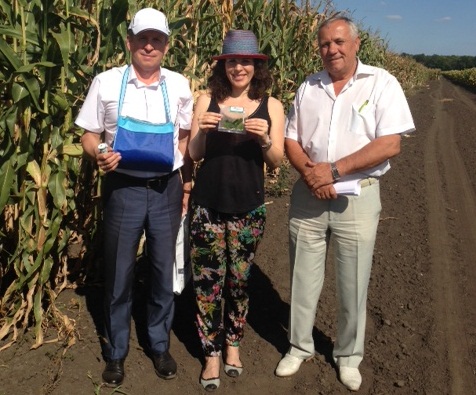The first independent project for identifying whether Russian farmers are growing illegal GM crops has started in the Belgorod region.

In August 2013 in the Belgorod region, NAGS (The National Association for Genetic Safety) conducted the first checks of agricultural crops for the presence of GMOs. No GMO plants were found in any Belgorod fields.
The Belgorod region is the pilot region, which kicked off the independent project “Agricultural GMO-monitoring” that checks fields for the presence of GMOs. Russia has not carried out any public or independent tests for GM crops until now.
The project ‘Agricultural GMO-monitoring’ – is an annual cycle of audits aiming to find out whether GM crops are grown in Russian fields. NAGS is testing crops of corn, soybeans and canola.
Project ‘Agricultural GMO-monitoring ‘ will provide accurate information about what the real situation regarding the cultivation of GMOs in Russia is. “All statements about the presence or absence of GMOs in Russian fields were so far only based on assumptions rather than actual research”, NAGS Director Elena Sharoykina stated.
“The first test, conducted in one of the most important agricultural regions of the country, has shown excellent results – the fields are clean, there are no GMOs. These studies have become even more relevant in the context of the recent orders of the President of the Russian Federation, Vladimir Putin, on the need to assess the appropriateness of admission of GMOs to the Russian market , which was addressed to the relevant ministries. NAGS position on this issue is that in Russia it is necessary to prohibit the planting of GM crops by law,” Sharoykina continued.
The study of crops in the Belgorod region was carried out with the support of Governor Yevgeny Savchenko and FGBU ‘rosselhoscenter’. The samples consisted of the following crops: 4 soybean varieties and 12 hybrids of maize from Monsanto, Syngenta, Euralis, Pioneer, Limagrain. The varieties were tested for resistance to glyphosate (RoundUp), and the maize was also tested for resistance to pests (Bt).
The project ‘Agricultural GMO-monitoring ‘ was made possible thanks to the new, Russian made, special test kits which allow you to quickly and accurately detect the presence of genetically engineered properties of plants in field conditions. The research is conducted through the method of express diagnosis for the presence / absence of genetically engineered properties (GMOs) in plants, seeds, and agricultural raw materials.
We remind you that according to the law in Russia 19 GM lines are allowed in foodstuffs, but the cultivation of GMOs is not allowed.
After joining the World Trade Organisation (WTO), Russia is obliged to simplify the procedure for registration of genetically modified products, seed and feed, to stop their safety checks and to stop controls over their distribution.
Reference:
National Association for Genetic Safety (NAGS) – is a non-governmenta,l non-profit, public organization, founded in Moscow in March 2004. The structure of NAGS includes scientists from different scientific fields, as well as environmentalists and social activists. The main objective of NAGS is human safety and environmental protection. To a great extent thanks to NAGS’ activity, GMOs and the problem of safety of these technologies have become a widely discussed topic in Russia. www.oagb.ru/about.php?txt_id=723


















